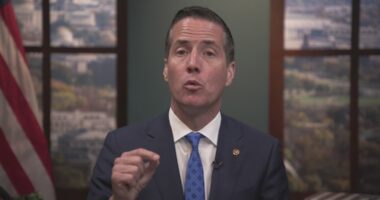
WASHINGTON – On Thursday, President Donald Trump announced his intention to sign an order that would raise U.S. tariffs to levels aligned with those of other countries on imported goods.
“TODAY IS THE BIG ONE: RECIPROCAL TARIFFS!!!” Trump posted on his social media site, Truth Social. “MAKE AMERICA GREAT AGAIN!!!”
This move could have significant implications for the global economy, potentially dampening growth and exacerbating inflation. While Trump argues that these tariffs would spur the creation of manufacturing jobs in the U.S., many economists counter that they would essentially function as a tax hike on American consumers, contributing to inflationary pressures.
In recent weeks, the president, a member of the Republican Party, has engaged in confrontations with various U.S. trade partners, issuing threats of tariffs and encouraging them to respond with their own import duties. Such actions raise concerns about the onset of a trade war, which could have detrimental effects on the economy.
Trump has put an additional 10% tariff on Chinese imports due that country’s role in the production of the opioid fentanyl. He also has readied tariffs on Canada and Mexico, America’s two largest trading partners, that could take effect in March after being suspended for 30 days. On top of that, on Monday, he removed the exemptions from his 2018 steel and aluminum tariffs. And he’s mused about new tariffs on computer chips and pharmaceutical drugs.
The European Union, Canada and Mexico have countermeasures ready to inflict economic pain on the United States in response to Trump’s actions, while China has already taken retaliatory steps with its own tariffs on U.S. energy, agricultural machinery and large-engine autos as well as an antitrust investigation of Google.
Trump has not specified how he defines the term “reciprocal” and whether his order would apply only to matching tariffs or to including other foreign taxes that he views as a barrier to exporting American goods.
Copyright 2025 The Associated Press. All rights reserved. This material may not be published, broadcast, rewritten or redistributed without permission.

















